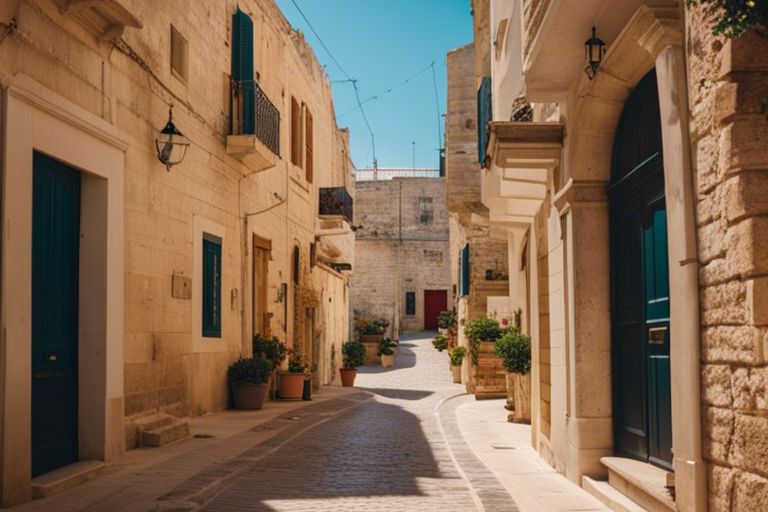Living Local in Malta

Guide to living local in Malta provides a comprehensive overview of what it takes to truly immerse oneself in the Maltese culture and lifestyle. This practical guide covers important aspects such as navigating daily life, understanding local customs, and making the most of your time in this vibrant Mediterranean island nation. From language tips to cultural norms, this guide offers imperative advice for those looking to experience Malta like a true local.
Choosing the Right Location
Your choice of location when living in Malta can significantly impact your overall experience. Whether you are an expatriate or a local looking to settle down, finding the right locality is crucial for a comfortable and enjoyable lifestyle. It’s important to consider various factors before making a decision.
Factors to Consider When Selecting a Maltese Locality
- Proximity to Work or School: Consider the location’s distance from your workplace or your children’s school to ensure convenience and minimize commute times.
- Amenities and Services: Look for areas that offer easy access to supermarkets, healthcare facilities, restaurants, and recreational activities.
- Public Transportation: Check the availability and reliability of public transport options in the area to ensure easy mobility.
- Cost of Living: Evaluate the affordability of housing, utilities, and overall cost of living in the locality.
Perceiving these factors will help you make an informed decision when selecting the right Maltese locality to call home.
Popular Areas for Expatriates and Locals
To choose the perfect locality in Malta, it’s imperative to explore popular areas that cater to the needs and preferences of expatriates and locals alike. Popular areas such as Sliema, St. Julian’s, and Valletta are favored for their convenient amenities, beautiful surroundings, and vibrant community atmosphere.
For instance, Sliema is known for its picturesque waterfront promenade, bustling shopping scene, and trendy cafes and restaurants, making it an attractive choice for those who enjoy a lively coastal lifestyle. St. Julian’s, on the other hand, offers a mix of entertainment options, including bars, clubs, and casinos, ideal for those seeking a vibrant nightlife scene. Valletta, the capital city of Malta, boasts a rich historical heritage, charming architecture, and cultural events, making it a top choice for those who appreciate artistic and cultural experiences.
Housing in Malta
You have decided to make the beautiful island of Malta your new home, and now you need to find the perfect place to live. The housing market in Malta offers a variety of options for expats and locals alike, ranging from traditional Maltese townhouses to modern apartments with sea views.
Types of Accommodation Available
When looking for housing in Malta, you will come across different types of accommodation available, including apartments, townhouses, villas, farmhouses, and penthouses. Each type of accommodation has its unique perks and quirks, so it’s necessary to understand what each offers before making a decision.
| Type of Accommodation | Description |
|---|---|
| Apartments | Most common housing option, often found in urban areas. |
| Townhouses | Traditional Maltese homes with characteristic architecture. |
| Villas | Luxurious standalone homes with private gardens and pools. |
| Farmhouses | Rural properties converted into charming residences. |
| Penthouses | Top-floor apartments offering stunning views. |
Tips for Finding the Perfect Home
When searching for a home in Malta, consider factors such as location, budget, amenities, transportation, and neighborhood. It’s crucial to weigh your priorities and preferences to narrow down your options effectively.
- Location is key when choosing a home in Malta. Consider proximity to work, leisure activities, and necessary services.
- Set a realistic budget before starting your house hunt to avoid overspending.
- Check for amenities such as parking, air conditioning, and internet connectivity.
- Evaluate the transportation options in the area, especially if you rely on public transport.
- Explore the neighborhood to get a feel for the community and local amenities.
Assume that professional guidance from a real estate agent can help simplify the house-hunting process and provide valuable insights into the market.
Integrating into the Community
Unlike other countries, integrating into the community in Malta can be a unique experience due to its rich cultural tapestry and warm, welcoming residents. One of the most critical steps to truly become a part of Maltese society is to understand and embrace the local customs and traditions. This can be achieved through immersing oneself in the Maltese culture, learning the language, and building relationships with neighbors and locals.
Learning the Maltese Language: A Step-by-Step Guide
Maltese Language Learning
| Step 1: Start with Basic Phrases | Step 2: Enroll in Language Classes |
| Step 3: Practice with Locals | Step 4: Use Language Learning Apps |
Cultivating Relationships with Neighbors and Locals
Cultivating Relationships with Neighbors and Locals
Cultivating meaningful relationships with your neighbors and local residents is key to integrating smoothly into Maltese society. Try taking the initiative to introduce yourself by participating in community events or volunteering for local causes. Building trust and mutual respect is imperative in Maltese culture, so make an effort to engage in conversations, show interest in others’ lives, and be respectful of their customs and traditions.
StepbyStep Engaging in local activities such as festivals, markets, or sports events can also help you connect with your neighbors and develop a sense of belonging within the community. Remember that patience and persistence are crucial when forming relationships, so take the time to get to know people slowly and authentically.
Daily Life and Public Services
Not only does Malta offer a charming lifestyle, but it also provides efficient and reliable public services to its residents. Navigating daily life in Malta is quite straightforward, thanks to its well-connected transportation system and accessible healthcare and education facilities.
Navigating Transportation in Malta
To get around Malta, residents and visitors can rely on a network of buses, taxis, and ferries. The bus system, operated by Malta Public Transport, covers most of the main areas on the islands, making it a convenient mode of transportation. Taxis are also readily available, especially in urban areas and at popular tourist spots. Additionally, ferries connect the main island of Malta to its sister islands, making island-hopping a breeze.
Healthcare and Education: Pros and Cons
| Healthcare: Pros | Healthcare: Cons |
| High-quality medical care | Long waiting times for non-emergency treatment |
| Access to specialists and modern facilities | Language barriers for non-English speakers |
| Reasonable healthcare costs compared to other countries | Limited availability of certain specialized treatments |
| Public and private healthcare options | Overcrowded hospitals during peak tourist seasons |
| Efficient emergency services | Dependency on public healthcare for non-residents |
| Education: Pros | Education: Cons |
| Free education for Maltese citizens | Limited availability of English-speaking schools |
| High standard of education in public schools | Challenges in the integration of foreign students |
| Internationally recognized qualifications | Class sizes can be large in public schools |
| Opportunities for further education and career advancement | Varied quality of private schools |
| Strong emphasis on bilingual education | Costs associated with private education |
Now, when considering healthcare and education in Malta, it is necessary to weigh the pros and cons before making decisions. The healthcare system offers high-quality medical care and reasonable costs, but there may be challenges with long waiting times and language barriers, especially for non-English speakers. Similarly, the education system provides free education for Maltese citizens and a high standard of education in public schools, but there might be limitations in English-speaking schools and challenges in accommodating foreign students.
Cons: While Malta excels in providing quality healthcare and education, some downsides include long waiting times for medical treatments, language barriers, limited availability of specialized treatments, and challenges in integrating foreign students into the education system. It is crucial for residents and newcomers to be aware of these limitations and plan accordingly.
Employment and Doing Business
Despite its small size, Malta offers a variety of employment opportunities for expatriates looking to work on the island. The job market in Malta is diverse, with openings in sectors such as finance, gaming, hospitality, and healthcare. English is widely spoken in Malta, making it easier for expats to integrate into the workforce.
The Job Market for Expatriates
Assuming you are looking to secure employment in Malta, it is important to research the local job market and understand the work culture. Networking plays a crucial role in finding job opportunities, so attending industry events and job fairs can be beneficial. It’s also advisable to tailor your CV to the Maltese market and highlight any relevant international experience you may have.
Starting Your Own Business: A How-To Guide
One of the appealing aspects of living in Malta is the possibility of starting your own business. The process of starting a business in Malta is relatively straightforward. You will need to register your business with the Malta Business Registry, obtain any necessary permits or licenses, and set up a local bank account. Plus, Malta’s attractive tax incentives for small businesses make it a desirable location for entrepreneurs looking to establish their own ventures.
Leisure and Lifestyle
Exploring Maltese Cuisine and Dining Etiquette
All visitors to Malta must indulge in the unique flavors of Maltese cuisine to truly experience the local culture. Maltese cuisine is a delightful mix of Mediterranean influences with a touch of Middle Eastern and Sicilian flavors. Some must-try dishes include rabbit stew (fenkata), pastizzi (flaky pastries filled with ricotta or mushy peas), and lampuki (dolphin fish) when in season. When dining out, it is vital to remember that it is considered polite to leave a small tip of around 5-10%.
Festivals, Events, and Outdoor Activities
Clearly, Malta is a lively and vibrant destination with numerous festivals and events happening throughout the year. From the colorful Carnival celebrations in February to the traditional village festas held during the summer months, there is always something to partake in. Outdoor enthusiasts will love exploring the rugged coastline through activities such as snorkeling, diving, and hiking along the picturesque cliffs. The Maltese Islands also host several music festivals, art exhibitions, and historical reenactments that showcase the rich cultural heritage of the region.
With over 300 days of sunshine a year, Malta is the perfect destination for outdoor enthusiasts. From water sports like sailing and windsurfing to exploring ancient ruins and picturesque villages, there is something for everyone to enjoy. The crystal-clear waters surrounding the islands offer excellent diving opportunities, with underwater caves, reefs, and wartime wrecks waiting to be explored.
Preparing for the Move
Keep your excitement in check and start preparing for your move to Malta. The key to a successful relocation is careful planning and organization. From arranging your finances to packing your belongings, there are several steps you need to take to ensure a smooth transition to your new life in Malta.
A Step-by-Step Checklist for Relocating to Malta
| To Do | Done |
| Research visa requirements | |
| Secure accommodations | |
| Notify banks and utilities of your move | |
| Arrange for international shipping | |
| Learn basic Maltese phrases | |
| Register with local authorities |
Adjusting Expectations: The Pros and Cons of Maltese Living
| Pros | Cons |
| Fascinating history and culture | High cost of living |
| Beautiful Mediterranean climate | Overcrowded during peak tourist seasons |
| Delicious local cuisine | Language barrier for non-English speakers |
| Easy access to stunning beaches | Limited career opportunities |
| Safe and welcoming environment | Public transportation can be unreliable |
The process of adjusting to life in Malta comes with its own set of challenges and rewards. Understanding the pros and cons of Maltese living will help you set realistic expectations and make the most of your experience. While you may encounter some difficulties like the high cost of living or limited career options, the warm climate, rich history, and friendly locals can make your time in Malta truly special.
Summing up
Living local in Malta is an enriching experience that allows you to fully immerse yourself in the vibrant culture of this beautiful island. By following the practical guide provided, you will be better equipped to navigate the nuances of daily life, including understanding the local language, embracing the traditional cuisine, and connecting with friendly locals. Whether you are a new resident or a long-time expat, embracing the Maltese way of life will surely enhance your overall experience in this Mediterranean gem.
Remember to respect local traditions, abide by the local laws, and immerse yourself in the rich history and culture of Malta. By living like a local, you will not only gain a deeper understanding of this unique island nation but also forge lasting connections with the community around you. So embrace the Maltese lifestyle and make the most of your time living local in Malta!
FAQs:
What factors should I consider when selecting a locality in Malta?
Factors such as proximity to work or school, availability of amenities, public transportation, and cost of living should be considered.
Which are the popular areas for expatriates and locals in Malta?
Popular areas include Sliema, St. Julian’s, and Valletta, known for their amenities, community atmosphere, and unique offerings.
What types of accommodation are available in Malta?
Accommodation options range from apartments and townhouses to villas, farmhouses, and penthouses, each offering distinct features and experiences.
How can I integrate into the Maltese community effectively?
Integrating into the community involves understanding local customs, learning the language, building relationships with neighbors, and participating in local activities.
What are some leisure and lifestyle activities to enjoy in Malta?
Exploring Maltese cuisine, participating in festivals and outdoor activities, and embracing the Mediterranean lifestyle are among the many leisure options in Malta.
Michael
With over 20 years experience in web design, SEO and website promotion I always give you an expert advice in regard to any issues related to your Site Design, SEO, Internet Marketing, Promotion, Backlinks, Site Content. In order to help you find out what is missing or can be improved and get higher rankings in Google and more traffic.
Recommended Posts

Discover iGaming Opportunities in Malta
July 26, 2024

Financial Aspects of Doing Business in Malta
July 26, 2024

The Rise of Digital Banking Solutions in Malta
July 24, 2024




